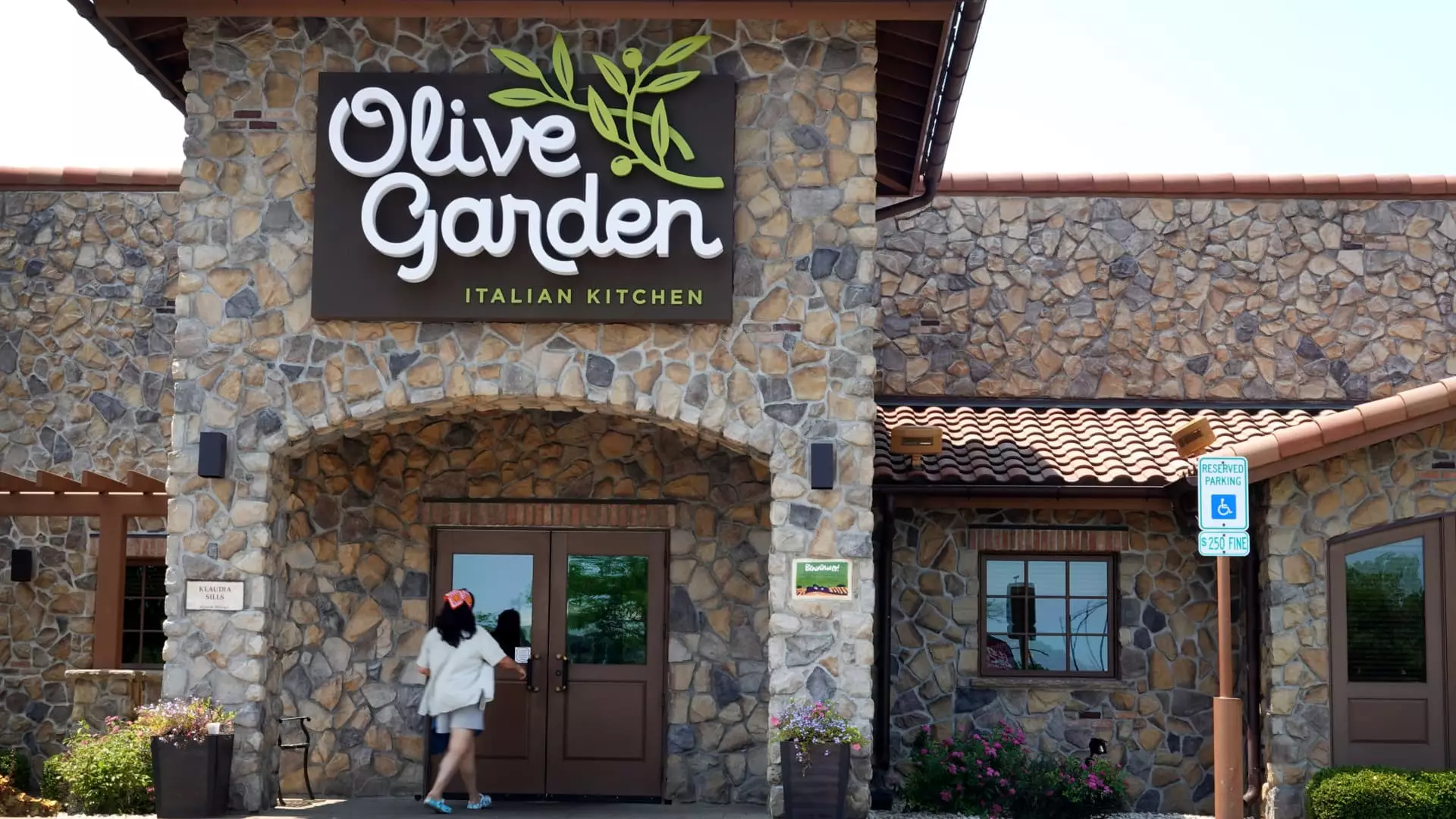Darden Restaurants faced a challenging first quarter, reporting earnings and revenues that fell short of analyst expectations. This dip was particularly evident in their well-known chains, Olive Garden and various fine dining establishments. CEO Rick Cardenas acknowledged this shortfall, expressing confidence in the company’s operational strategies while emphasizing a long-term vision over immediate gains. Despite the underwhelming financial performance, investor optimism appeared to prevail, as shares jumped nearly 10% in premarket trading following the announcement.
For the quarter ending August 25, Darden recorded adjusted earnings per share of $1.75, which was slightly below the anticipated $1.83. Revenue figures also disappointed, standing at $2.76 billion instead of the expected $2.8 billion. Nevertheless, the company’s net income of $207.2 million represented an increase from $194.5 million the previous year, indicating a slight upward trend. The challenge lies in the minute details; while net sales saw a modest 1% increase, same-store sales experienced a decline of 1.1%. This lingering concern about customer traffic was echoed by CFO Raj Vennam, who noted a significant drop in restaurant attendance during July, which later saw some recovery.
The performance of Olive Garden was particularly troubling, with same-store sales contracting by 2.9%. In an attempt to revitalize interest, the chain is reintroducing its popular Never Ending Pasta Bowl, a strategy aimed at boosting customer turnout. In contrast, the fine dining segment, inclusive of upscale brands like Eddie V’s and The Capital Grille, reported a notable same-store sales drop of 6%. This downturn reflects heightened competition and shifting consumer preferences as diners become more selective about their restaurant choices.
Despite the adverse trends, LongHorn Steakhouse emerged as a bright spot in Darden’s portfolio, showcasing a notable same-store sales increase of 3.7%. This performance aligns with the chain’s solid standing since the COVID-19 pandemic, demonstrating resilience amid fluctuating market conditions. LongHorn’s success could serve as a potential model for other divisions within Darden as they seek to recapture lost business.
In light of the recent results, Darden’s management remains resolute, upholding their outlook for the fiscal year 2025. The company’s forecast anticipates earnings per share between $9.40 and $9.60, alongside projected net sales ranging from $11.8 billion to $11.9 billion. This commitment to long-term objectives, even in the face of immediate setbacks, may reassure stakeholders as Darden navigates the complexities of a challenging restaurant market.
While Darden Restaurants is grappling with significant operational hurdles, their focus on strategic initiatives and a resilient brand like LongHorn Steakhouse offers a glimmer of hope for recovery in the subsequent quarters. The balance between addressing immediate issues and maintaining a broader vision for growth will be crucial for Darden’s continued success in a rapidly evolving dining landscape.

